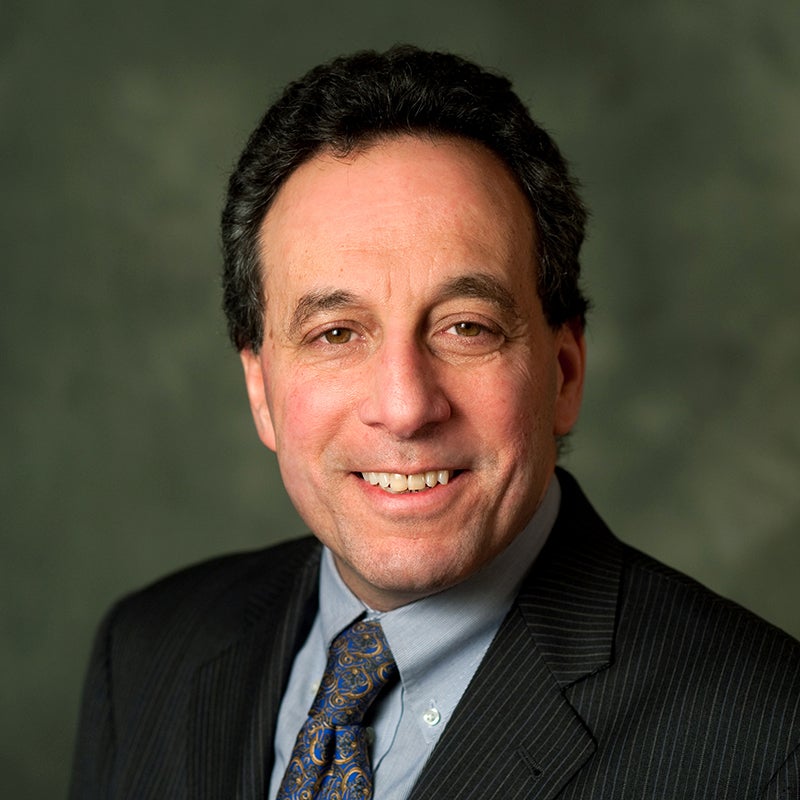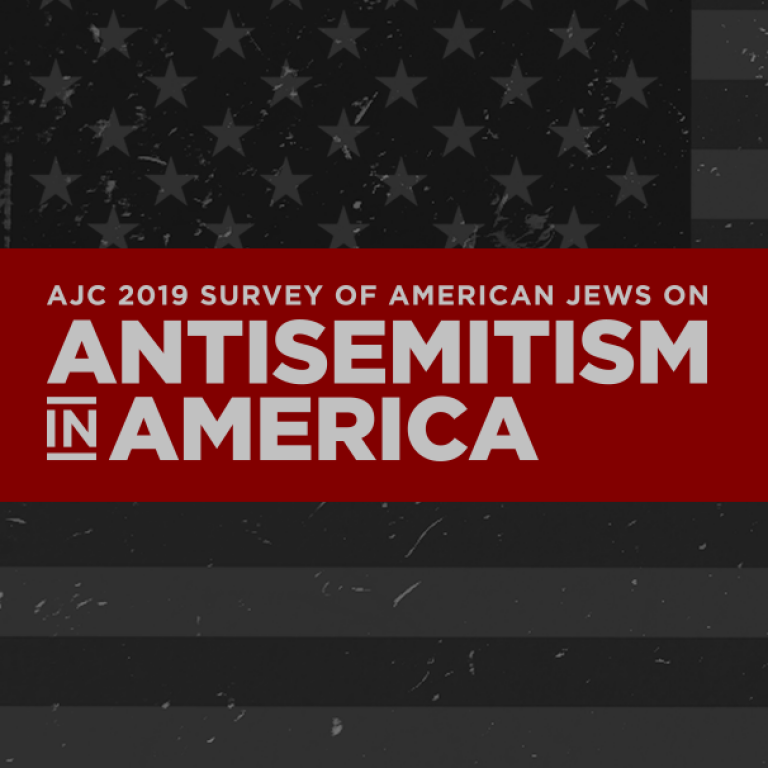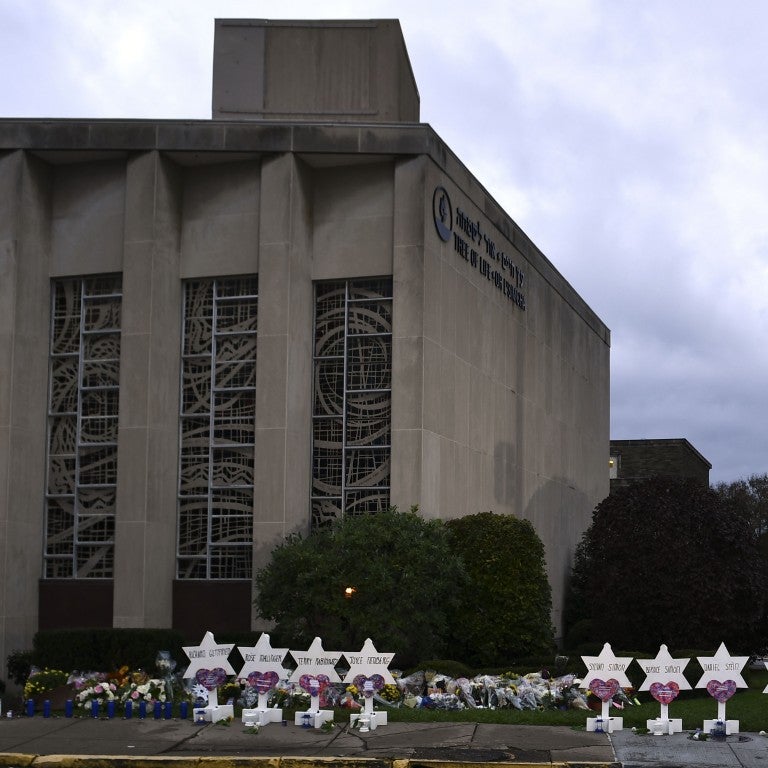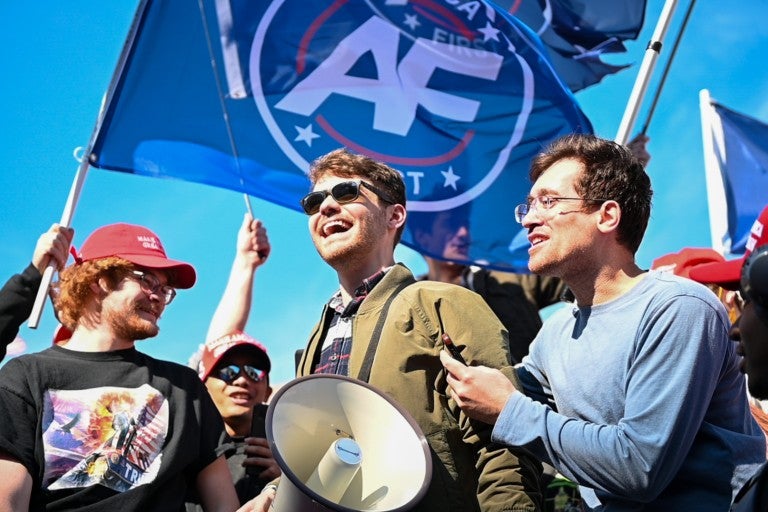October 23, 2019
This piece originally appeared on FOX News.
American Jews are agonizing over apparent disregard for the reality and magnitude of antisemitism in the United States. Definitions of the oldest hatred in the world are debated publicly, while the sources and extent of threats against Jews and their communities are sometimes doubted or ignored.
The terrorist murder of 11 worshipers from three congregations inside Pittsburgh’s Tree of Life building last October, killing of one at the Chabad House in Poway, California in April, and a series of assaults on Orthodox in Brooklyn, added to fears that targeting Jews in twenty-first century America may be more ingrained in our society than has been generally appreciated.
Indeed, 88% of American Jews say antisemitism is a problem, and 38% say it’s a very serious problem, in the U.S. today, according to a new American Jewish Committee (AJC) survey. A similar majority, 84%, say antisemitism has increased over the past five years, and 43% said it has increased a lot.
These and other findings in the AJC national poll confirm that confronting this continually evolving evil in American society requires urgent attention by American leadership and society in general.
Unanimity across age cohorts, Jewish denominations, and political affiliations is striking. 86% of those 18-29 years old; 87% of those 30-49; 89% of the 50-64 cohort; and 91/% of the 65 and over group say antisemitism in the U.S. is a very serious or somewhat of a problem.
Similarly, 84% of ultra-Orthodox, 80% of Modern Orthodox, 91% of Conservative, 94% of Reform, 92% of Reconstructionist, and 87% of secular Jews agree with that assessment, as do 93% of registered Democrats, 75% of Republicans, and 87% of independents.
Probing individual experiences reveals circumstances even more distressing. In the nation that leads the world in protecting and promoting religious freedom, 31% of American Jews have avoided publicly wearing, carrying or displaying things that might help people identify them as Jews, and 25% avoid certain places, events, or situations at least some of the time out of concern for their safety or comfort as Jews. Moreover, one-third say Jewish institutions with which they are affiliated have been targeted by antisemitic attacks, graffiti, or threats.
When any American minority feels threatened, they look to elected political leadership for support. But in an era of extraordinary partisanship and divisiveness, when combating antisemitism has become a wedge issue, the strictly nonpartisan AJC found an American Jewish community generally concerned that elected officials are not doing all that can and should be done to fight antisemitism in the U.S. effectively.
Nearly three-fourths of the survey sample, 72%, disapprove of President Trump’s handling of the threat of antisemitism in the U.S., compared to only 24% who expressed approval. Interestingly, on this issue, respondents diverge along political party affiliations. While 84 percent of Jewish Republican voters approve (49 percent strongly) and only 4% of Jewish Democrats approve of the president’s handling of antisemitism, 92 percent of Democrats disapprove (82 percent strongly), and 11 percent of Republicans disapprove (7 percent strongly).
When asked which of the two major political parties is more responsible for the current level of antisemitism in the U.S., respondents blamed the Republican Party more than the Democratic. On a scale of 1 (no responsibility) to 10 (total responsibility), respondents gave the Republican Party an average score of 6.2 and the Democratic Party a 3.6.
Battling antisemitism is one issue where bipartisanship should be fundamental. Washington, as well as state and local authorities, can and should do more, not just allocating additional funds for security.
One area to begin is acknowledging, as American Jews do, that antisemitism emanates from three, not one, primary sources. The AJC survey found that 89% said the extreme political right poses a threat to American Jews, with 49% saying it’s a very serious threat; 64% said the extreme political left, with 15% saying it’s a very serious threat; and 85% said extremism in the name of Islam, with 27 percent saying it’s a very serious threat.
Policymakers should read carefully and take to heart the findings in this most comprehensive study to date of American Jewish perceptions of and experiences with antisemitism in their own country. Then, they should commit to seriously develop strategies aimed at stamping out this seemingly entrenched hatred. Antisemitism, we know from history, may begin with Jews, but ultimately threatens other minorities, and potentially the fabric of America’s pluralistic democracy.
Ignoring the reality and magnitude of antisemitism in the U.S. can no longer be an option.
Kenneth Bandler is the American Jewish Committee’s director of media relations.






